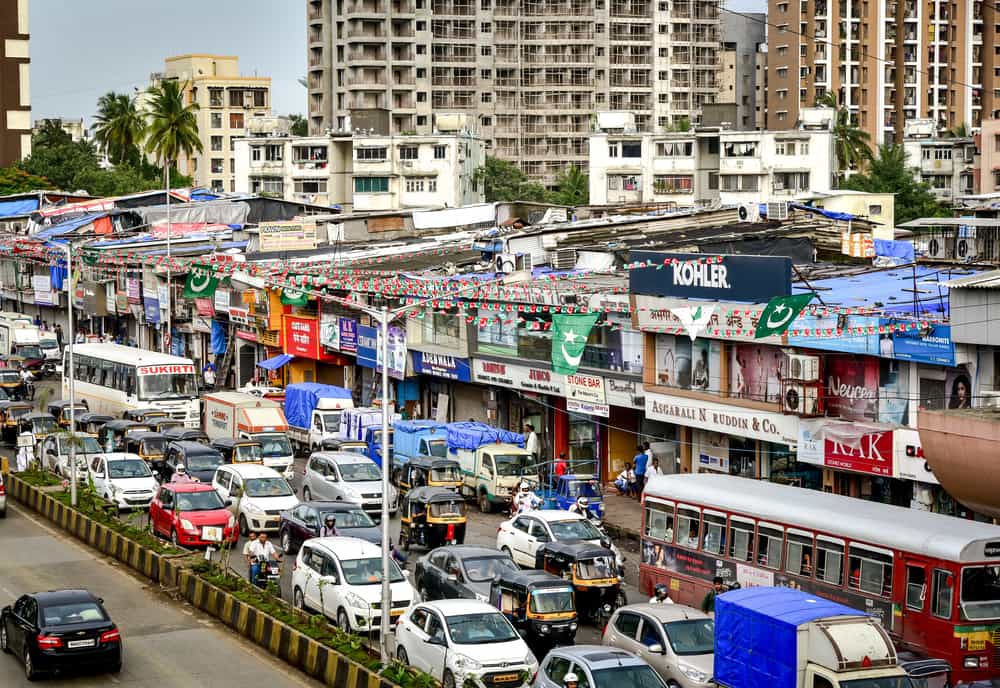
If there’s one overriding lesson I learnt from my time in India, it was that waste is only a problem if no-one pays for it.
In this country, waste management runs on the polluter pays principal, effectively the organisation that creates the waste – be it shop, manufacturer, hotel etc – pays a professional company to take it away.
Of course that’s not a service we provide for free, keeping the streets clean is not a social enterprise and running a waste management business requires deep pockets and regular investment to stay one step ahead of ever stricter environmental regulations.
In India however, this business model has been turned on its head. Instead, the waste collector pays an organisation for the ‘privilege’ of taking away the waste it no longer wants.
The downside is that this includes all different types of waste – from more valuable items that can be recycled or recovered to unwanted materials.
The waste collector makes a tidy profit from the army of individuals who earn a living hand-sorting through mountains of waste to identify recoverable waste but the crunch comes when the remainder is left.
At that point, the job of the city council is to pay a waste management company to remove it to landfill.
The huge disconnect we are left with is that the original source of the waste – the polluter – makes no contribution whatsoever to its disposal. Effectively, as soon as they have been paid by the collection company, they wash their hands of it and start the process again.
That can’t be right.

Disposal options
We also know that India’s use of landfills is at odds with trends in this country (and we’re certainly trying to encourage zero waste to landfill wherever possible), but we have to recognise what works best for local markets and that brings me neatly back to the UK.
The other day, Barry Brockbank, assistant director in operations at Stoke-on-Trent city council, said he believed that national blanket recycling targets are not a good fit for all local authorities.
Although he declared himself as an ‘avid environmentalist’ he said that given it costs his council £100 per tonne to recycle v £65 per tonne to incinerate waste, the financial sums made him question the environmental credentials of recycling.
One of the problems he highlights is high levels of contamination and if there is one issue that our India experience demonstrated is that separation of waste streams is essential to get the most value from waste.
Here, MRF operators have had to put their prices exactly because contamination is so high.
The onus is on all of us then, to find better solutions to make segregation easier – it is something Grundon is constantly working towards, through education programmes with our customers, through encouraging segregation and supporting the circular economy.
The art of sorting waste really can work – it’s just that we need to utilise more modern and effective methods of achieving that goal.
Enforcement is one of those methods and the most important piece of legislation to help us achieve that is the Duty of Care: Waste Transfer Note.
It clearly sets out the type of waste, where it is coming from and where it is going and, alongside the licence that all professional waste carriers must have to carry out waste disposal, is a real cornerstone of our industry.
I’d like to see the taxes raised through charges for these regulations ring-fenced and used to pay for extra enforcement officers to carry out their duties, taking action against illegal operators, fly tippers and others who bring our sector into disrepute.
Changes ahead
There’s no doubt India has a dynamic and forward-thinking economy, but it is one which still has a long way to go in waste management terms. For that reason, I think it will be at least a decade before differences will really be seen.
The seeds of change are there, together with a growing tide of determination to look after the environment.
Young people, both in India and the UK (and hopefully the rest of the world) recognise that driving environmental awareness is one of the most pressing issues of our age yet it is also something that comes at a price.
That’s why we see comments like those above, about the fact that recycling is too expensive because of contamination. That’s not an excuse to stop doing it, it should be a poke with a sharp stick to make us all reduce contamination and increase recycling rates.
We are all aware of our environmental obligations – when it comes to costings, we must equally be aware of the need to ensure all the externalities likely to be involved in getting this right are priced in.
There must be no financial surprises to trip up those willing to embrace change.





Subscribe for free